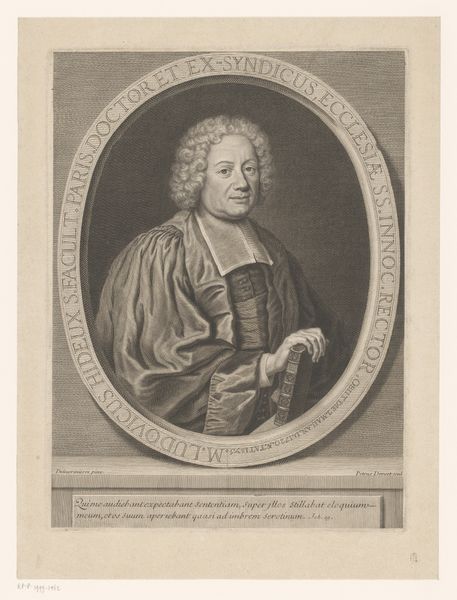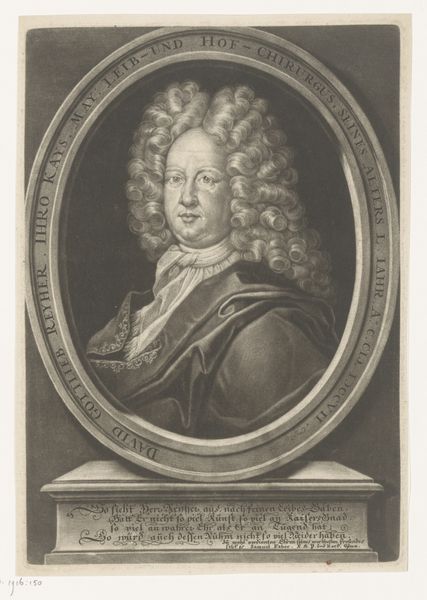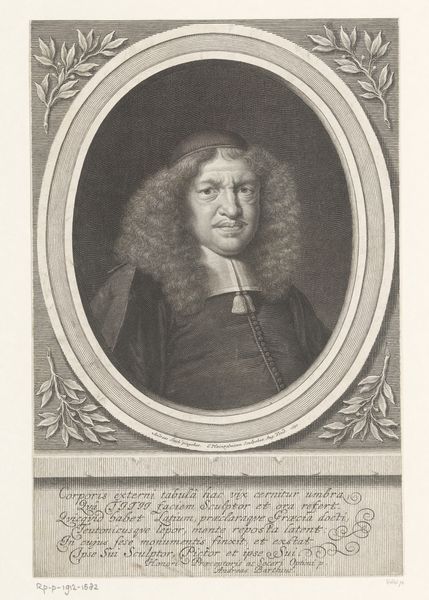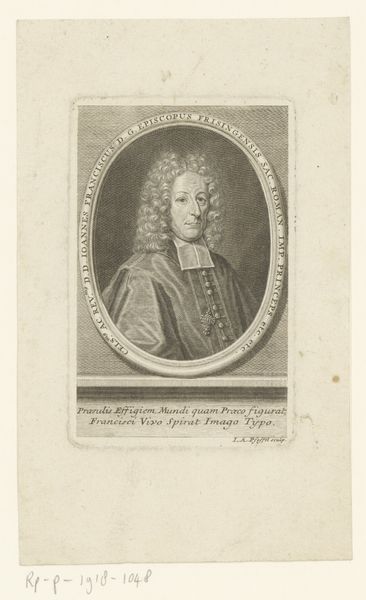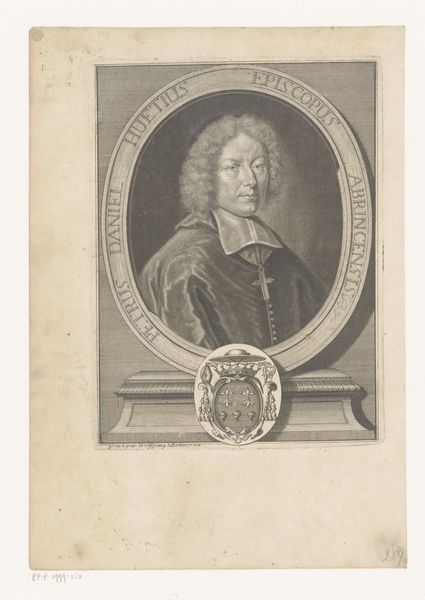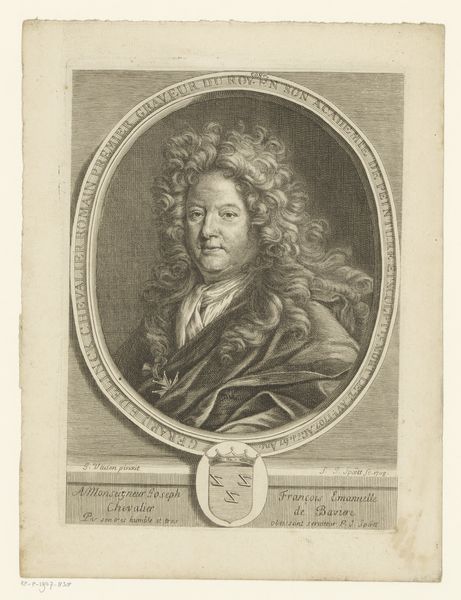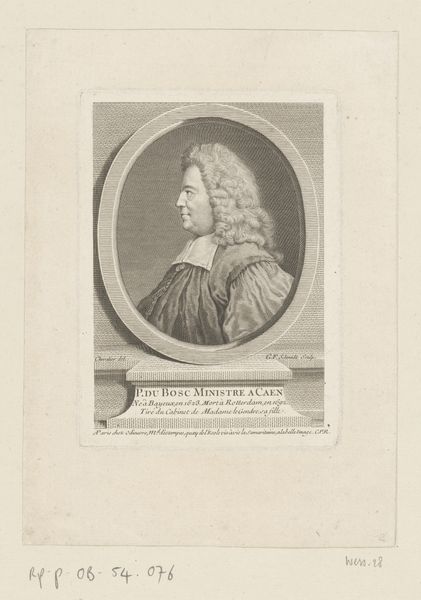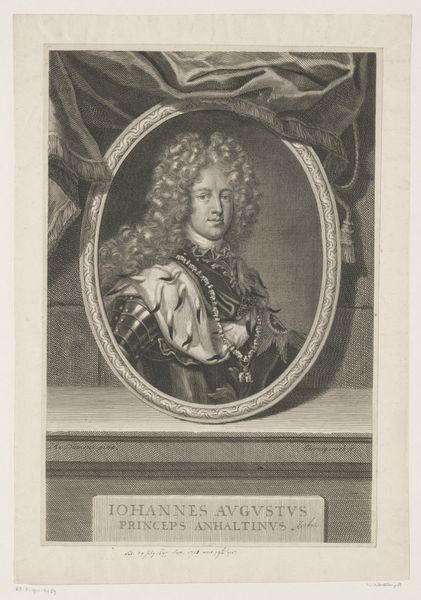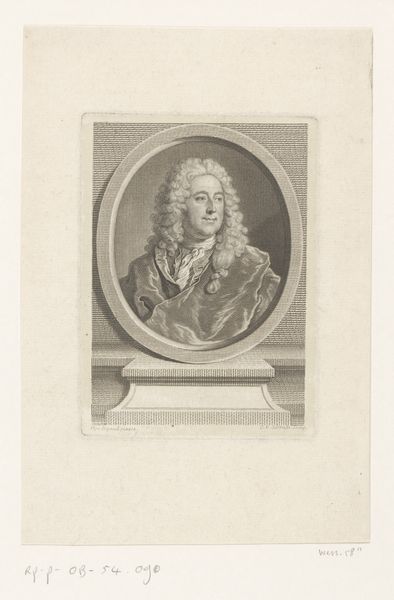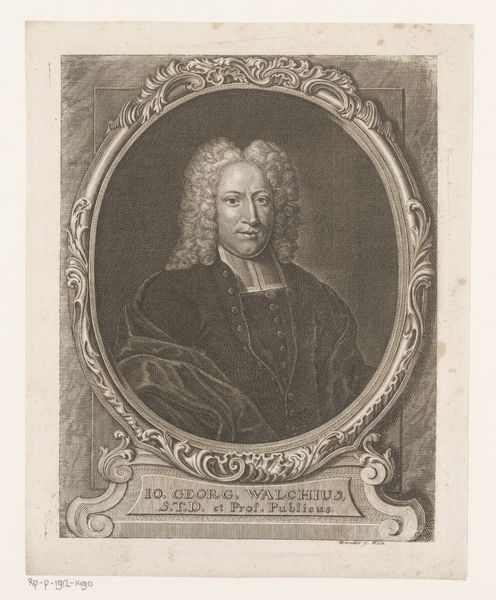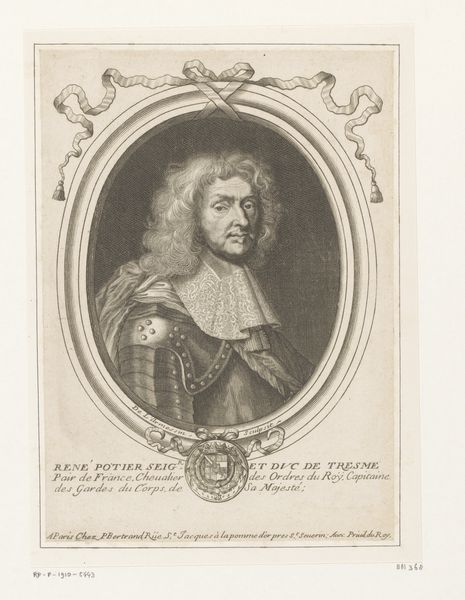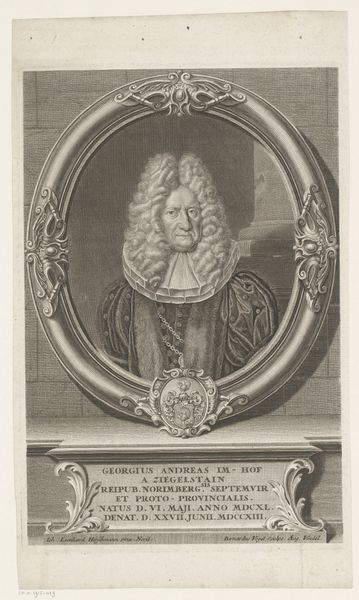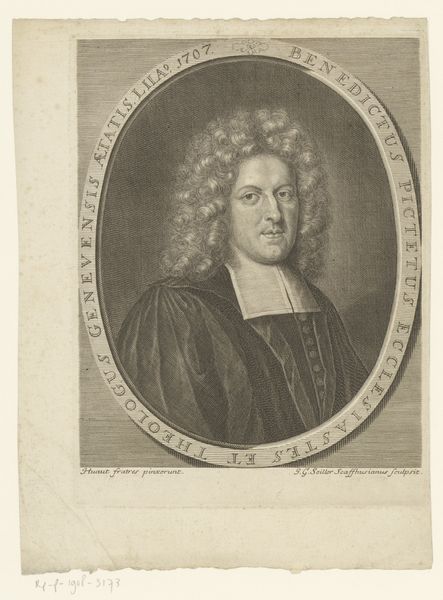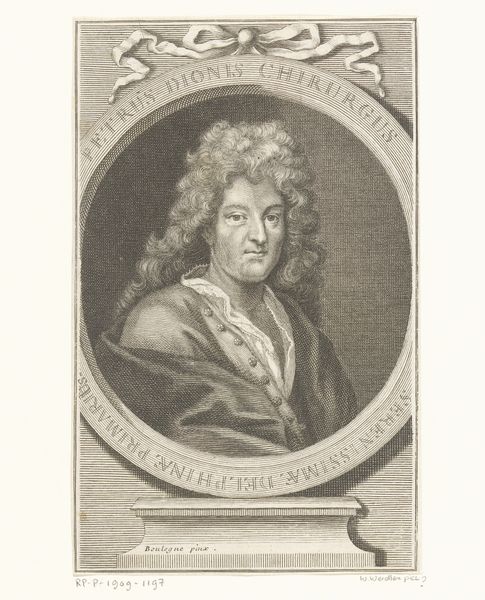
#
photo of handprinted image
#
aged paper
#
toned paper
#
light pencil work
#
photo restoration
#
ink paper printed
#
parchment
#
light coloured
#
old engraving style
#
white palette
Dimensions: height 151 mm, width 110 mm
Copyright: Rijks Museum: Open Domain
Editor: We’re looking at "Portret van René Pucelle," an engraving from 1741 by Etienne Ficquet, currently at the Rijksmuseum. It’s a very formal portrait, framed in an oval, with precise linework. What strikes me most is the stark contrast, and how the circular frame isolates the figure. What do you see in it? Curator: Observe how the composition employs classical formalism. The oval, the inscription plaque, the figure's pose - they all adhere to established conventions of portraiture designed to convey status and intellect. Editor: So, the structure itself is part of the meaning? Curator: Precisely. Consider the use of line. Ficquet masterfully employs hatching and cross-hatching to create tonal variations, suggesting volume and texture. Notice especially how light is modulated across Pucelle's face and wig. This controlled technique speaks to the engraver's skill. Is the execution neat, messy, regular, or erratic? Editor: Neat, very precise. It's not expressive in the same way a painting might be. It's controlled. Curator: Indeed. It presents its subject as dignified through clarity and order. It also presents an intriguing case study on how an artist used lines and circular structure to encapsulate social status and intellectual capability in the Age of Enlightenment. Editor: That emphasis on order, achieved through these graphic techniques...it really does speak to the Enlightenment. I wouldn’t have picked up on that without thinking about the technical execution and visual forms. Curator: Exactly! Examining the interplay of form and technique unlocks so much.
Comments
No comments
Be the first to comment and join the conversation on the ultimate creative platform.
